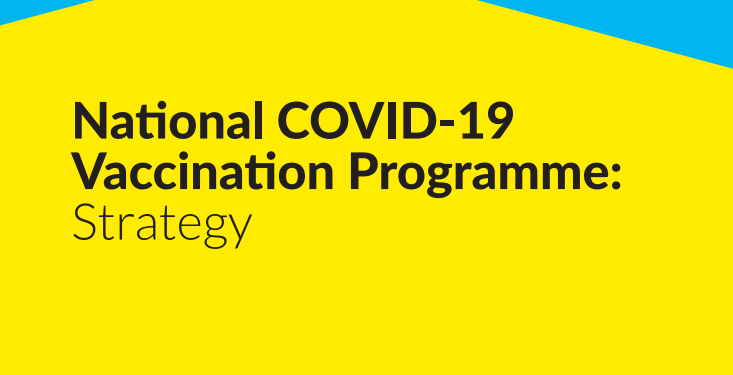Minister for Health, Stephen Donnelly TD, has today announced the National COVID-19 Vaccination Strategy, which outlines Ireland’s high-level plan for safe, effective and efficient vaccination of the population, while safeguarding continued provision of health and social care services.
The National COVID-19 Vaccination Strategy, which was prepared by the High-Level Task Force on COVID-19 Vaccination, was signed off by Cabinet this morning.
The Government established the High-Level Task Force on COVID-19 Vaccination in November with the purpose of supporting the Department of Health and the HSE in developing the plan. The HLTF has also produced an Implementation Plan. This provides more detailed operational information and will be a ‘living document’, requiring regular revision and updating as the programme evolves.
The Minister for Health said: “Today is a really positive day for all of us. After a very difficult year, we are hopeful that COVID-19 vaccines will be approved for use in Ireland in a matter of weeks. The National COVID-19 Vaccination Strategy announced today means that we will be ready if a vaccine passes the rigorous quality and safety tests by the European Medicines Agency. The scale of the COVID-19 vaccination programme will be bigger and more complex than previous vaccination programmes. It will play a central role in our exit from the pandemic. Over time it will allow us to return to re-open our society and to reconnect in the ways we once took for granted.
He added: “This Strategy is the result of the close cooperation that has taken place across Government, between my Department and the HSE, and with a wide range of key stakeholders. I would like to thank Professor Brian MacCraith and the members of the Taskforce for their work to date.”
The vaccines will be rolled out in three phases – the initial roll out, a mass ramp-up and open access. The highest priority groups, those over the age of 65 living in long-term care facilities and frontline healthcare workers in direct patient contact, will receive the vaccine first.
Vaccines will be administered from long-term care facilities, hospitals, mass vaccination clinics, GP surgeries and community pharmacies. This will be done by qualified and trained healthcare workers, including hospital doctors, community medical officers, nurses, GPs and pharmacists.
The Minister for Health said: “In early October, Ireland was mid-table in Europe in terms of the number of COVID-19 cases. Since then, much of Europe has struggled badly with a large rise in ICU admissions and, tragically, many deaths. That has largely been averted in the second wave in Ireland – by our pre-emptive action. Right now, we have the lowest rate of COVID-19 of any country in the EU. It is important to remember that COVID-19 is still out there, and it is still dangerous and, in some cases, fatal. Cases of COVID-19 have crept up again in recent days, and so we must all be careful. Mind yourselves. Stick with the public health advice. Mind your loved ones. And remember, every contact counts.”
European Medicine Agency decisions regarding initial COVID-19 vaccines are expected by December 29 at the latest. If the EMA approves vaccines, it is expected that the vaccine will be rolled out in Ireland within a matter of days.










